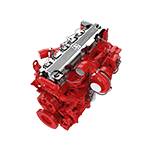nov. . 15, 2024 22:23 Back to list
do brake drums wear out
Understanding the Wear and Tear of Brake Drums
Brake drums are critical components of a vehicle's braking system, particularly in drum brake setups that are commonly used in older cars, light trucks, and some trailers. As vehicles age and accumulate mileage, various parts of the braking system, including brake drums, experience wear and degradation. Understanding how and why brake drums wear out is essential for accurate vehicle maintenance and ensuring passenger safety.
The Function of Brake Drums
Brake drums function by providing a friction surface against which brake shoes press to slow down or stop the vehicle. When the brake pedal is engaged, hydraulic pressure pushes the brake shoes outward against the inner surface of the brake drum. This friction generates the force needed to slow the wheels and, consequently, the vehicle. Over time, this process inevitably leads to wear on both the brake shoes and the brake drum itself.
Causes of Brake Drum Wear
1. Friction Heat One of the primary reasons for wear in brake drums is the heat generated through friction. Every time the brake is applied, friction generates significant heat. High temperatures can cause the metal of the drum to expand and warp over time, leading to uneven wear patterns and reduced braking efficiency.
2. Material Fatigue The materials used in brake drums, typically cast iron or aluminum, can suffer fatigue due to repeated heating and cooling cycles as the brakes are applied and released. This fatigue can lead to cracks or even complete failure in severe cases.
3. Poor Maintenance Regular inspections and maintenance are crucial for extending the lifespan of brake components. Neglecting to check brake fluid levels, or allowing dirt and debris to accumulate in and around the brake system, can exacerbate wear. Additionally, failing to replace worn-out brake shoes in a timely manner can lead to increased wear on the drum itself, as the shoes may not provide adequate friction if they are old or damaged.
4. Driving Conditions Aggressive driving, frequent stops, and driving in hilly or mountainous terrains place extra stress on the braking system. This increased demand can accelerate the wear of brake drums. Furthermore, driving in wet or muddy conditions can introduce contaminants that affect braking performance and contribute to quicker wear.
do brake drums wear out

5. Overloading the Vehicle Exceeding the manufacturer's weight limit can significantly strain the braking system. Heavier loads require more braking force, leading to increased friction and heat in the brake drums, which ultimately leads to accelerated wear.
Signs of Brake Drum Wear
Being aware of the signs of brake drum wear can help you identify issues before they become more serious. Common indicators include
- Vibration or Pulsation If the vehicle shakes or vibrates during braking, it may indicate warped brake drums due to excessive heat or uneven wear. - Increased Stopping Distance If you notice that your vehicle takes longer to stop, it may be time to check the brake drums and shoes for wear.
- Noisy Braking Grinding, squealing, or other unusual noises can indicate that the brake shoes are worn out, which can lead to damage to the brake drums if not addressed.
- Visible Damage Inspecting the brake drums during routine maintenance can reveal cracks, deep grooves, or discoloration due to excessive heat.
Preventative Measures and Maintenance
To prolong the life of brake drums, regular maintenance is essential. This includes routine inspections, timely replacement of brake shoes, and proper adjustment of the braking system. It's also advisable to flush and replace brake fluid periodically to prevent moisture absorption, which can lead to corrosion and reduced braking performance.
In conclusion, brake drums do wear out over time due to various factors ranging from friction heat and material fatigue to maintenance issues and driving conditions. By understanding these factors and paying attention to the signs of wear, vehicle owners can take proactive steps to ensure their brake systems remain safe and effective, thus prolonging the life of their vehicle's braking components. Regular maintenance, in particular, is key to ensuring that brake drums, along with the entire braking system, function properly, enhancing both vehicle performance and safety.
-
Your Brake Drum Man: Quality & Performance Parts
NewsAug.21,2025
-
Explore Japan: Ultimate Travel Guide & Authentic Experiences
NewsAug.19,2025
-
Your Brake Drum Man: Premium & Reliable Brake Drums for Sale
NewsAug.18,2025
-
ROR Web Development: Build Fast, Scalable, Secure Apps
NewsAug.17,2025
-
Scania Brake Drums: OEM Quality for Optimal Safety & Durability
NewsAug.16,2025
-
R.V.I: Advanced Remote Visual Inspection for Precision
NewsAug.15,2025
